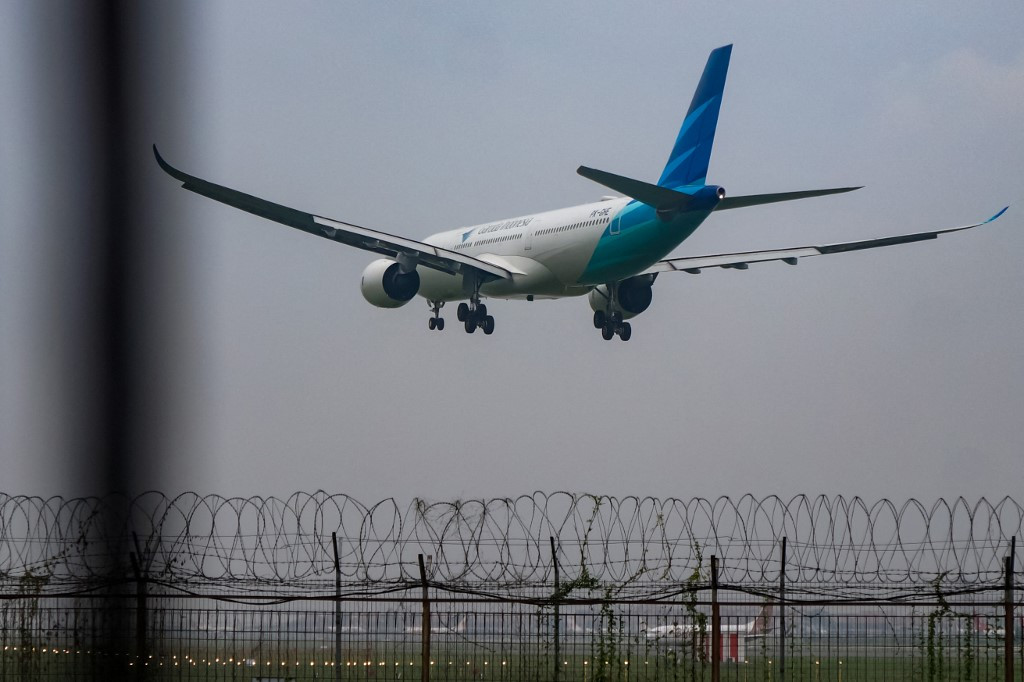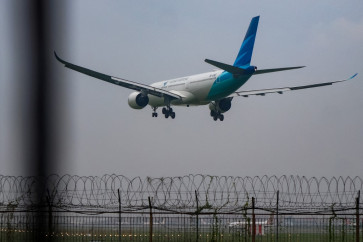Popular Reads
Top Results
Can't find what you're looking for?
View all search resultsPopular Reads
Top Results
Can't find what you're looking for?
View all search resultsShould we close down Garuda?
No matter its profitability, the existence of a national airline is considered mandatory to tell the world, “We still exist!”
Change text size
Gift Premium Articles
to Anyone
T
he bankruptcy of an airline is not uncommon. Dozens of airlines have gone from the sky in modern aviation history. This is mainly due to the nature of the business, which is extremely sensitive to even small changes, making profit margins surprisingly small and companies prone to large losses.
Volatile oil prices, expensive maintenance of technology and human capital, political conditions and even unique unexpected events such as volcanic eruptions or crashes can adversely affect the profitability of an airline. In the realm of free-market business, when an entity has failed to make money, especially for a long time, terminating it is possibly the most logical option.
However, this is often not the case for a national flag carrier. Roughly defined as a “national airline”, with which a state or nation is associated, the decision-making process is made more complex. So many flag carriers are actually struggling, but filing for bankruptcy is not easy. There are several reasons why it is not easy to close down a money-losing national airline.
A flag carrier, as the name suggests, has a function of showcasing a nation internationally. No matter its profitability, the existence of a national airline is considered mandatory to tell the world, “We still exist!” It aims to build a positive narrative about the nation in international community. If Garuda, for example, could regularly fly to world's central business cities, such as New York or London, the political and economic effect would be positive. Of course, this is supposed to be accompanied by perfect safety records and services.
Another reason is its historical roots. In Garuda’s case, for example, the airline witnessed our nation's struggle during a critical period of the fight for independence. It played a significant role in defending our nation's independence by transporting the founding fathers to many regions in the archipelago. This initiative later developed a so-called “imagined community” among us, as Benedict Anderson put it, which virtually united us.
Popular perception matters too. In the case of Garuda, the perception of this national airline is likely to be positive. Garuda can be associated with assurance of good safety, high scores on-time performance and exceptional service. Even though the trend was up and down throughout history, including the darkest years during late 2000s, recent facts show Garuda is technically better. Some people don’t mind paying twice or three times the price of private-sector competitors for these assurances.
These reasons are likely to shape our emotional bias toward the airline. It makes it difficult for us to just let it go. As a popular theory in behavioral sciences notes, a loss of something is perceived as emotionally more severe than an equivalent gain. We humans tend to avoid losing even if it risks us twice as much than gaining something. We can’t just lose our national pride!



















